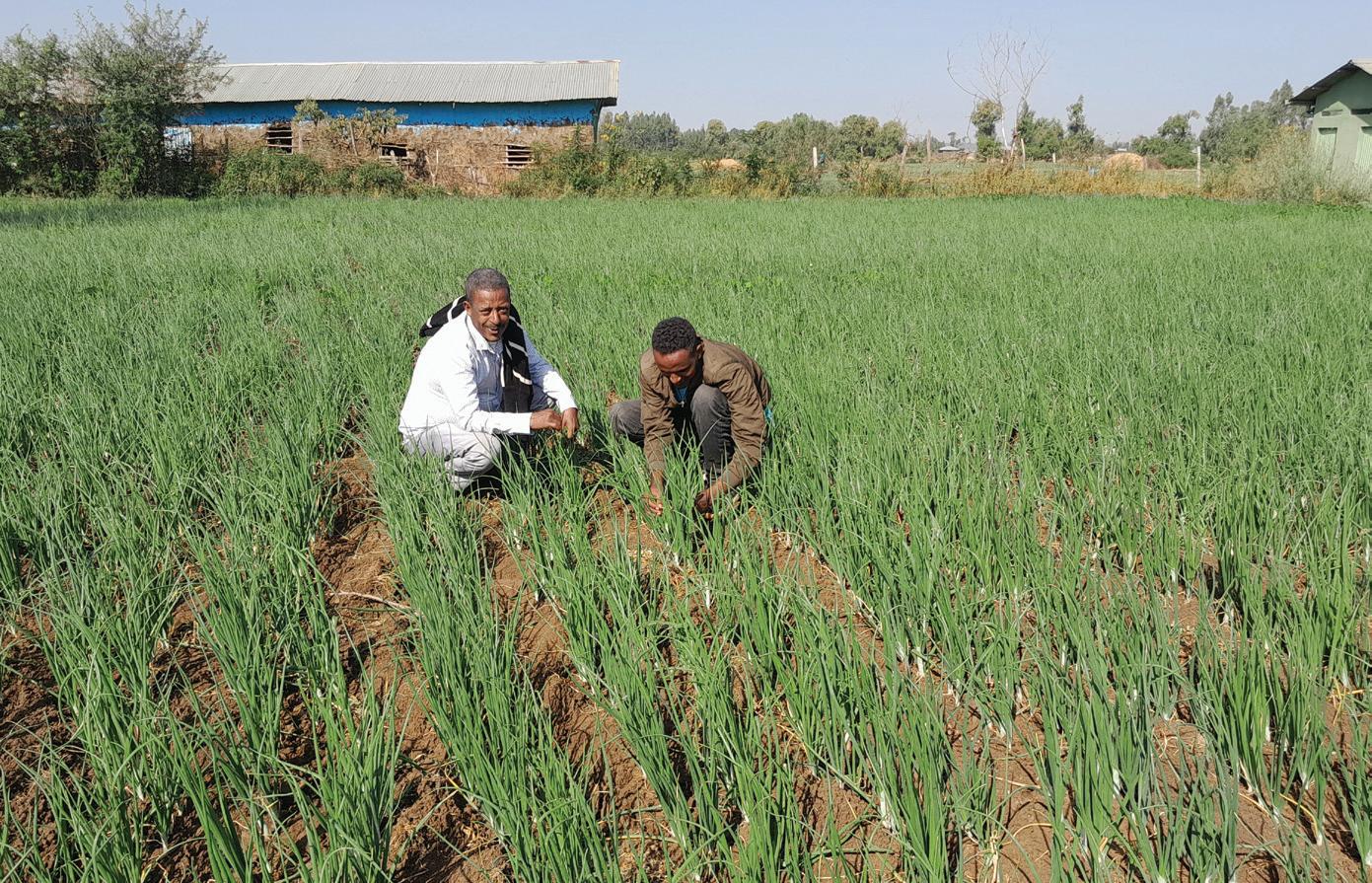
6 minute read
BfDE Newsletter: More Bees
Supporting agro-biodiversity and livelihoods in Amhara, Ethiopia
Bees for Development Ethiopia
Advertisement
Bees for Development Ethiopia is a local resident charity based in Bahir Dar. We work to increase the benefits of beekeeping towards supporting rural livelihoods, always integrated with wise management of natural resources and maintenance of habitat for bees.
In Ethiopia agricultural intensification has been identified as a key pillar in national development plans to increase food security and to support farmers’ livelihoods. Irrigation agriculture allows farmers to extend their farming seasons and harvest food and cash crops throughout the year. Yet intensive irrigated agriculture comes with challenges and chief amongst these is the risk of pest and disease outbreaks. Farmers and agriculture extension workers think that chemical-based pest control i.e. pesticide application is the only remedy. Yet intensive pesticide application brings many unintended negative consequences as noted here.
Did you know?
Many pesticides which are banned for use in the European Union, because they are highly dangerous to humans and the environment, are still made, sold and exported to Africa – where they pose great risks to people and the environment. For example, imidacloprid, which kills bees, is banned for use in Germany and France, but is sold by these nations to countries in Africa, including Ethiopia.
Disadvantages of using pesticides
• Kills beneficial insects e.g. pollinating insects, natural enemies of crop pests and honey bees
• Poses health risks for farmers
• Causes environmental contamination e.g. pesticides can enter lakes and streams
• Residues can build up in food produce, potentially harming those who eat the produce
• High cost

This onion plot, in Kuhar Abo, Fogera, is managed using Integrated Pest Management approaches and enables farmers to learn in practice.
The beekeepers we work with tell us that pesticides are killing their bees and making it harder and harder to produce honey. On the one hand Ethiopia as a nation is determined to build its beekeeping sector, on the other hand bees are being unintentionally harmed by pesticides. It is against this background we joined together with Pesticide Action Nexus Ethiopia and other partners to start a new Project in 2022, More Bees: Supporting agro-biodiversity and livelihoods in Amhara, Ethiopia. We are working in Fogera and North Mecha.
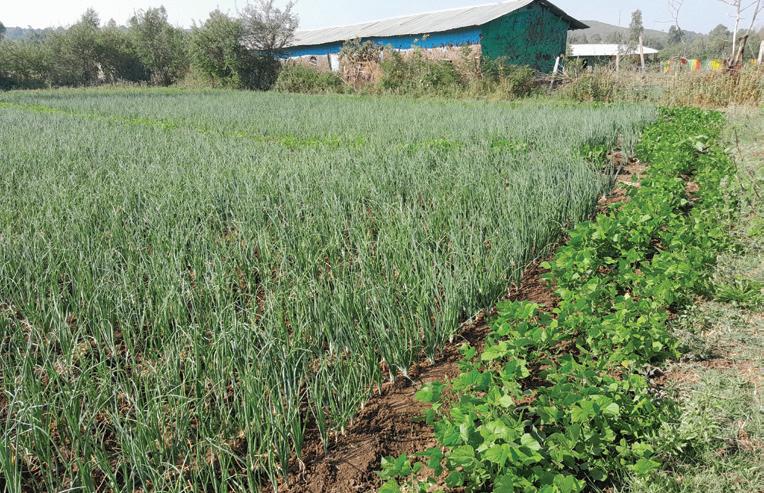
Here a strip of lablab-bean is planted next to the crop to provide a habitat for natural enemies, such as ladybirds.
Project aims and objectives
Project Outcome
Adoption of integrated pest management in 2 sites in Amhara, leading to restoration of beekeeping livelihoods, increased abundance of beneficial insects, and more income for smallholders.
Output 1
Smallholder farmers and government extension workers in Fogera and Mecha have a good understanding of their local agroecosystem.
Output 2
Integrated pest management approaches adopted by smallholders in Fogera and Mecha.
Output 3
Beekeeping enterprises established and re-established by smallholder farmers.
Output 4
Farmers, government extension workers and other stakeholders have good understanding about ways to support biodiversity-friendly agriculture.
Project activities
Since starting the Project in June 2022 the team has delivered the following activities:
Learning about pollination
Pollination is the transfer of pollen from the anther of one flower to the stigma of another, and must occur for plants to produce seeds and fruits. Yet many farmers and extension workers are ill-informed about pollinators and their importance. To address this gap, pollination specialist, Mike Edwards from UK, provided training to agriculture experts and development agents, Bees for Development Ethiopia and PAN-Ethiopia staff, MSc. students from Bahir Dar University and beekeeping researchers. At the end of the training participants could identify different kinds of pollinators, including mining bees, carpenter bees and hover flies.
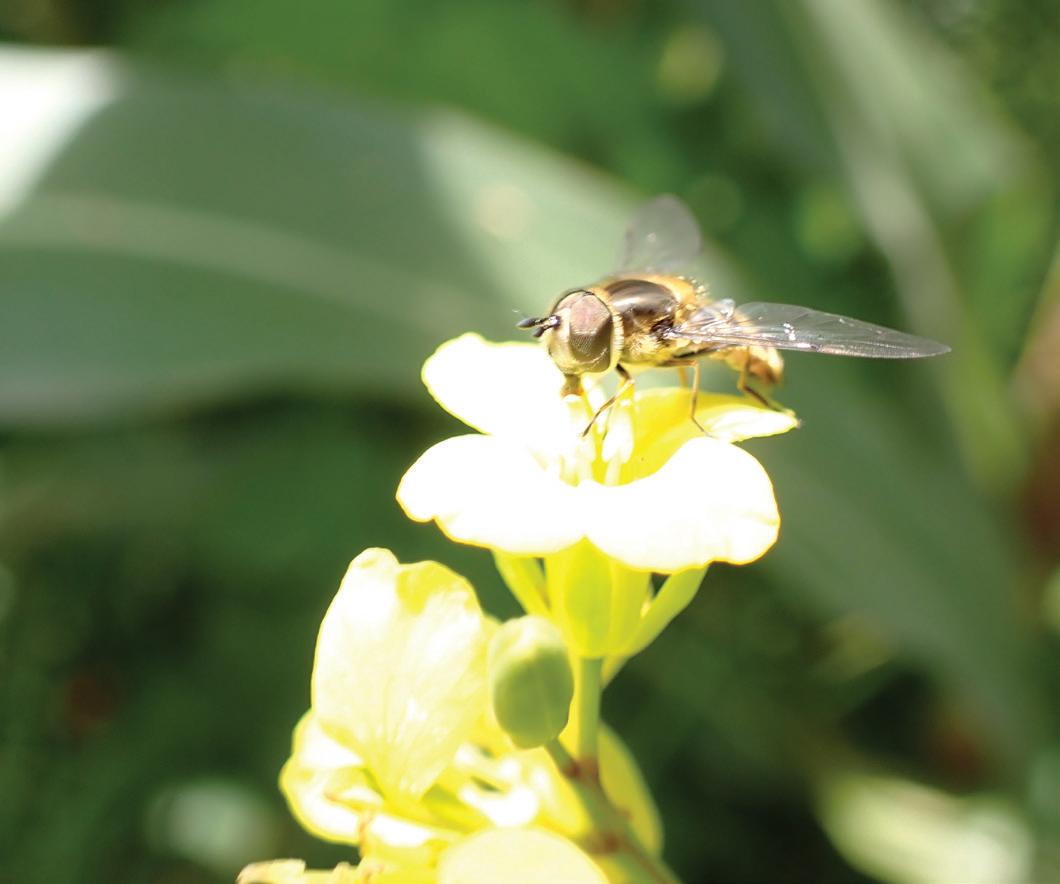
Hover fly larvae are ‘Farmers’ Friends’ and eat aphids, yet the adult hover flies must consume pollen in order to reproduce
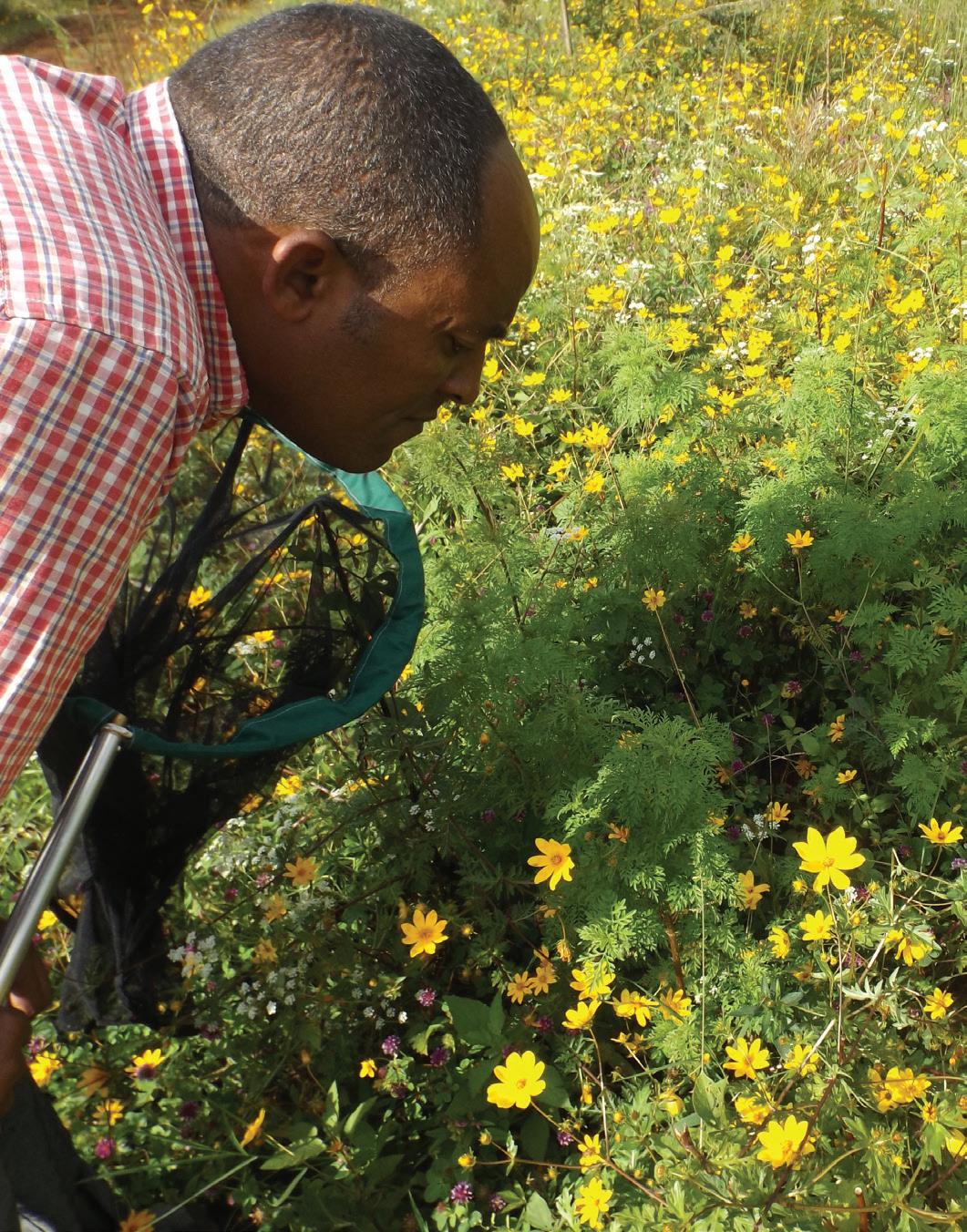
During the pollinator training days, participants were surprised to learn that in addition to the honey bee, there are hundreds of other bee species in Ethiopia.
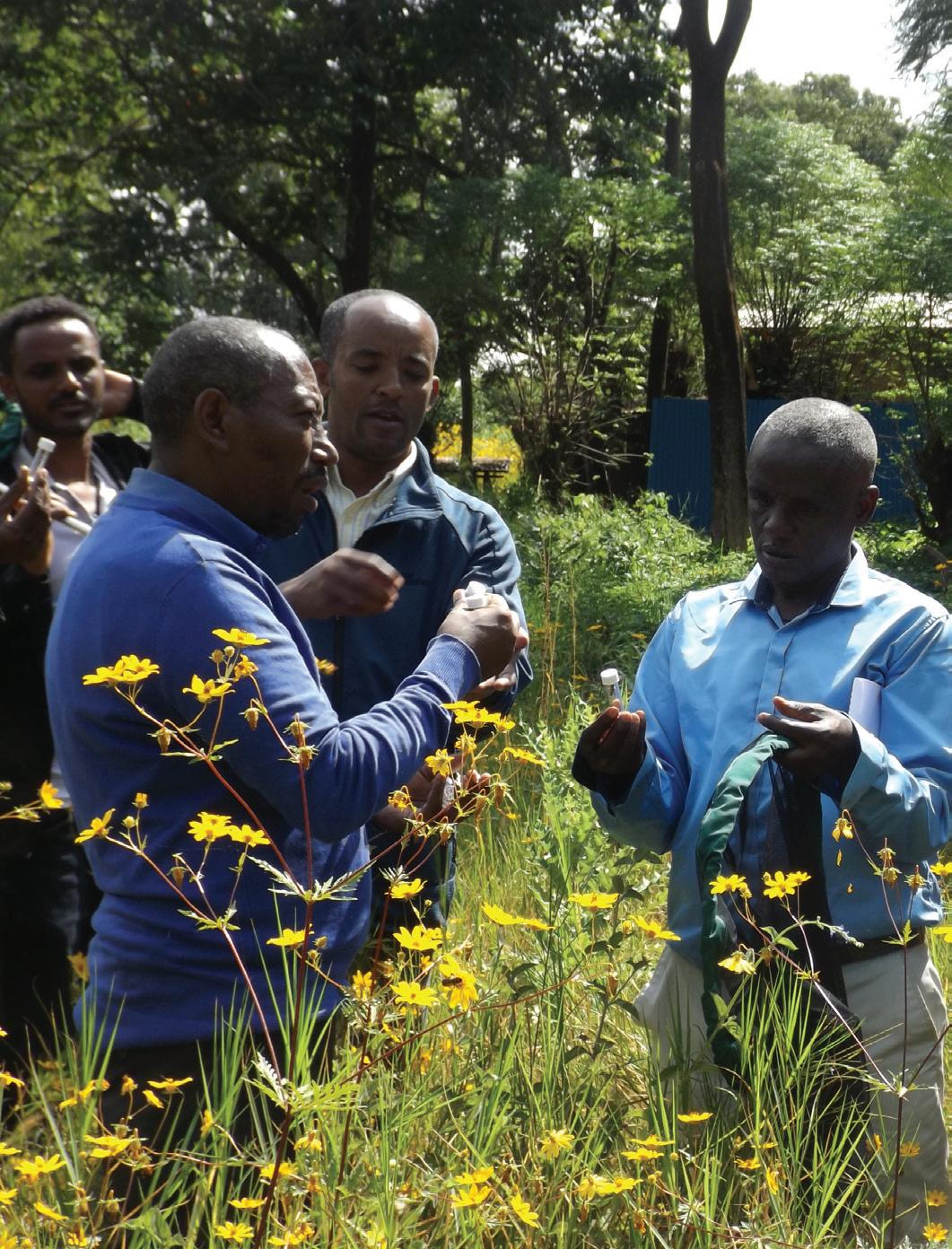
Participants learn how to observe and identify pollinators, as this is the first essential step towards their conservation.
Integrated Pest Management training
Before the Project farmers relied on chemicals only to control pests, having no knowledge of alternative approaches. To begin to change practices, a training course on Integrated Pest Management was delivered to government agriculture and livestock extension workers and the field workers.
The trainees stated that, “The use of different active learning methods made the training lively and engaging for everyone. The IPM training enhanced our understanding. It is very important to address farmers’ real problems related to crop pest control”. The training course covered topics about plant health, soil health and the role of natural enemies.
Farmer Field Schools set-up
Farmers learn best through practical learning and by finding out for themselves. Theoretical training alone is not adequate. This Project is setting up and supporting Farmer Field Schools (FFS) and establishing IPM trials on vegetables and pulse crops. The FFS participant farmers attend weekly trainings on aspects of IPM and agroecology and they collect data about the number of pests and natural enemies they find in the trial crops. Currently, FFS trials are being conducted on onion and grass pea in six kebele. Farmers explained, “We used to think that no insects, apart from honey bees, had any benefit. Now we understand the importance of maintaining habitat to support natural enemies. We are doing pest observations. We count insect numbers and work out the ratio between natural enemies and pests so we can make informed decisions about spraying”.
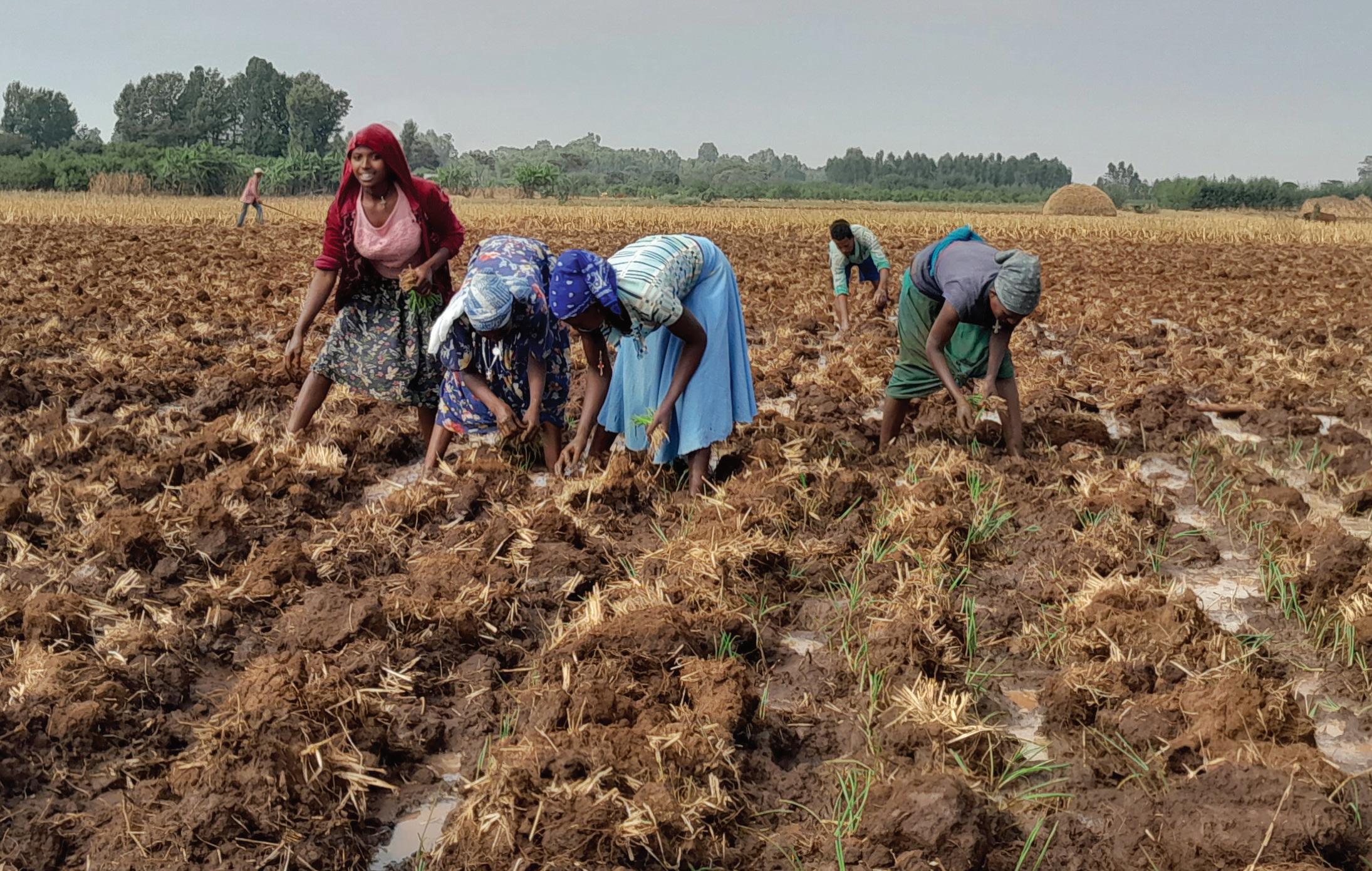
Farmer Field School members in Enguti, North Mecha; they meet regularly and learn new ways to control pests on this crop, without chemicals.
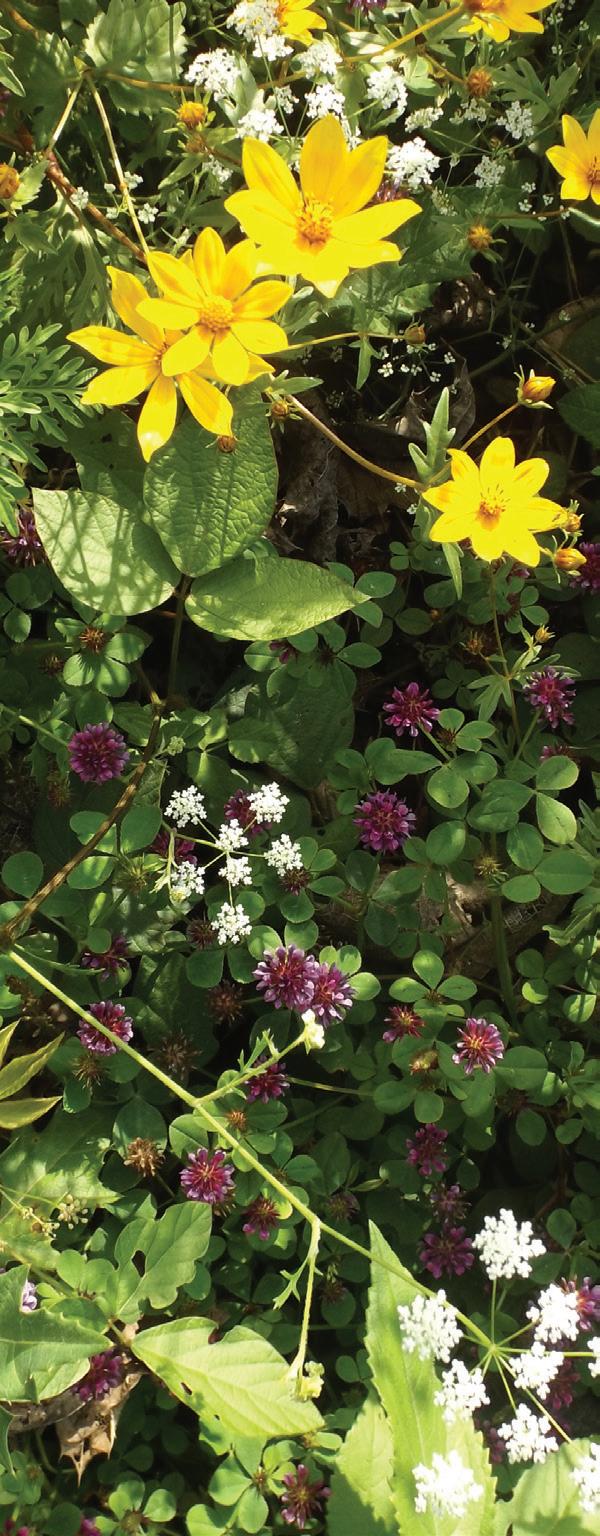
Flower-filled habitats support diversity and abundance of beneficial insects, and must be encouraged.
Beekeeping training
Beekeeping is a nature friendly business that can be started with local resources and low capital. However, the death of bee colonies is common, caused by pesticides. To counter this situation beekeeping trainings have been provided to 41 crop protection, horticulture and beekeeping experts, and development agents. The trainees explained that as many of them are crop protection and horticulture professionals they did not know a lot about beekeeping. “This is the first beekeeping training we took. We now understand the link between crop protection and beekeeping. This kind of integrated thinking is not common and yet so important”.
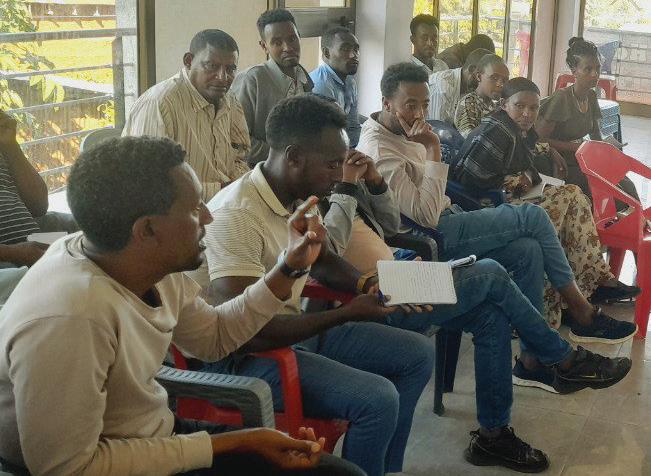
Development agents and experts learn about the link between beekeeping and crop-protection.











